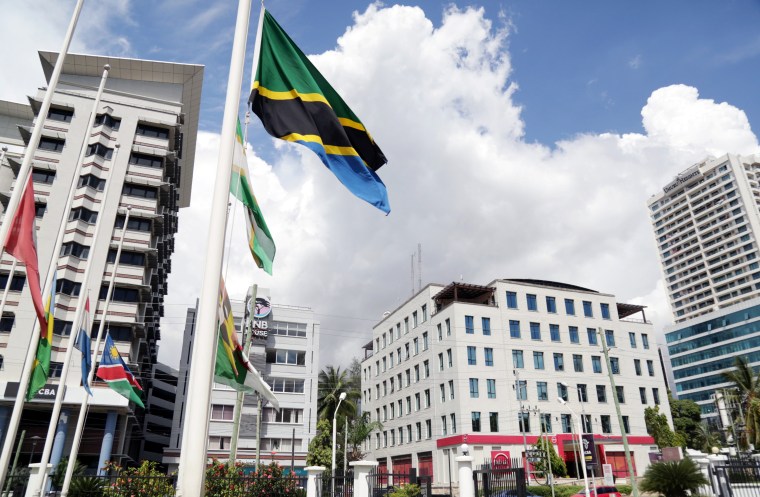Nairobi, July 12, 2022 – Tanzanian authorities should allow the DarMpya online news outlet to resume operations without further interference and reform the country’s online content regulations so they cannot be used to muzzle the press, the Committee to Protect Journalists said Tuesday.
On July 1, the Tanzania Communications Regulatory Authority (TCRA) ordered DarMpya to suspend publication immediately, according to news reports and a copy of TCRA’s July 1 letter.
The letter cited the TCRA’s June 28 inspection of the outlet’s office in the commercial capital of Dar es Salaam, where authorities found that the outlet’s license had expired in 2021, and it was therefore publishing in breach of the Electronic and Postal Communications (Online Content) Regulations.
A person familiar with the matter, who spoke to CPJ on the condition of anonymity citing safety concerns, said that DarMpya had applied for its license renewal shortly before the suspension. On July 6, DarMpya tweeted that it had ceased publication until it could renew its license.
The letter said the inspection followed complaints about DarMpya’s coverage of a protest, but did not specify the reporting in question. In a since-deleted tweet seen by CPJ, DarMpya alleged that a June 17 protest against alleged Kenyan interference in the Tanzanian government’s plan to evict members of the Maasai community from lands in northern Tanzania was staged. The person who spoke to CPJ said that the inspection was in response to that tweet.
Tanzanian Information Minister Nape Nnauye told CPJ via messaging app that DarMpya had been under scrutiny for allegedly unbalanced content, but said the outlet’s suspension had nothing to do with its journalism and was solely due to its failure to comply with licensing requirements.
“Tanzanian authorities are using a repressive set of regulations to control who may and may not express themselves online. The suspension of the DarMpya news outlet shows how such regulations can become tools of censorship,” said CPJ Sub-Saharan Africa Representative Muthoki Mumo. “Authorities should allow DarMpya to resume operations without interference, cease using harsh regulations to police speech on the internet, and urgently reform the country’s laws to nurture, rather than limit, press freedom.”
DarMpya publishes national news and commentary on its website, on YouTube as DarMpya TV, where it has about 809,000 followers, and on Twitter as DarMpya Blog, where it has over 309,000 followers. It has not published news content on those channels since July 2.
Tanzania’s online content regulations were first issued in 2018, and at the time CPJ called on authorities to scrap the regulations, as they threatened the “diversity and robustness of online media.”
A new version of the regulations was issued in 2020, and those rules were amended earlier this year, narrowing the scope of the licensing requirements, but news blogs, online television broadcasters, and online radio stations must still register with the TCRA and comply with content restrictions.
Nnauye told CPJ that the Tanzanian government was engaging with local journalists about reforming media laws, but while the regulations remain on the books, the government will enforce them.
“We can’t close our eyes and say the law isn’t there,” he said. “As long as the law is there, it is not suspended, it is not changed. I am sworn to stand and make sure these laws are followed. If it is changed, then we will follow the new one.”
Under President Samia Suluhu Hassan, who took office last year, Tanzania has committed to reforming its media laws, as CPJ has documented. However, at least two other publications—Raia Mwema and Uhuru—were suspended last year, as CPJ has documented.
In a phone call today, a representative of the TCRA said they would follow-up on emailed queries CPJ had sent about DarMpya’s case. CPJ had not received a response at the time of publication.
